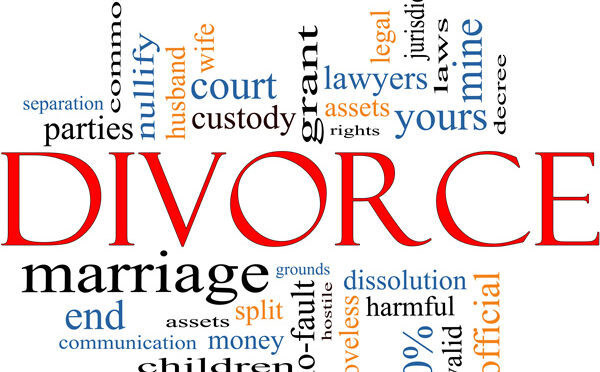Charitable Organizations and Religious Groups
Charitable organizations and religious groups in Massachusetts are exempted from property taxes as per the Massachusetts General Laws, Chapter 59, Section 5. However, the law requires that these organizations actively use the property for their charitable or religious activities to qualify for this exemption. For example, a property owned by a non-profit organization that offers shelter to homeless individuals or a church used for worship services would be exempt from property taxes.
Educational Institutions
Educational institutions play a pivotal role in shaping society, and Massachusetts acknowledges this by providing property tax exemptions to both public and private educational entities. As per Clause Second and Clause Third of the Massachusetts General Laws, Chapter 59, Section 5, these institutions are relieved from paying property taxes. However, it is crucial that the property is actively utilized for educational purposes to be eligible for this exemption.
A variety of institutions fall under this category. This includes public schools, where children receive their basic education, as well as public and private universities where students pursue higher studies. Libraries housed within these educational institutions also qualify for these exemptions, as they are integral to the educational process, providing access to an array of resources for students and faculty members.
For example, a private university in Massachusetts that owns property used for classrooms, dormitories, or research labs would qualify for this exemption. Similarly, a public high school with sports facilities used by students as part of their education would also be exempt from property taxes.
Notably, this exemption applies to educational institutions that operate for the benefit of the public. They are not meant to apply to private entities providing education for profit. This safeguard ensures that the focus remains on supporting institutions that genuinely facilitate learning and education.
Furthermore, the aim of these exemptions is to promote education by reducing the financial burden on these institutions, allowing them to redirect their funds toward improving the quality of education and broadening their offerings.
These exemptions for educational institutions reflect the state’s commitment to fostering a thriving educational environment for its residents.
Veterans, Their Spouses, and Surviving Spouses
In recognition of the sacrifices made by military personnel, the Commonwealth of Massachusetts has stipulated property tax exemptions for veterans, their spouses, and surviving spouses. Under Clauses, Twenty-second to Twenty-second E of the Massachusetts General Laws, Chapter 59, Section 5, certain conditions must be met for these individuals to be eligible for these exemptions.
To qualify, veterans need to have served during a recognized war or military conflict and must have been honorably discharged. In addition to this, they must meet certain disability conditions. These conditions can range from having a service-related disability, losing the use of limbs, or being a recipient of the Purple Heart.
For example, a veteran who served during the Gulf War and was honorably discharged after losing a limb in service would likely be eligible for this property tax exemption.
Furthermore, the law extends these benefits to the spouses and surviving spouses of such veterans. For instance, if a veteran who met the requirements for the property tax exemption passes away, their surviving spouse would continue to receive the property tax exemption, provided they remain unmarried and continue to use the property as their primary residence.
These exemptions are a way for Massachusetts to provide some financial relief and show gratitude to those who have served and sacrificed for the nation. It’s also worth noting that some cities and towns may adopt local options to increase the amount of these exemptions, further helping those who’ve served.
However, the exact amount of exemption and the specific conditions can be complex, so it’s advisable for veterans and their families to consult with a tax professional or the local veterans’ services officer to fully understand these benefits.
Source: Clauses Twenty-second to Twenty-second E
Elderly Individuals
Massachusetts provides financial relief to its elderly residents by extending property tax exemptions to those who have reached a certain age. Under Clauses Forty-first A, Forty-first B, or Forty-first C of the Massachusetts General Laws, Chapter 59, Section 5, eligible senior citizens may be exempt from property taxes.
To qualify, they must meet income and residency conditions as specified by the law. These include a minimum residency period in Massachusetts and using the property as their primary residence. Further, their total earnings and assets, inclusive of social security, retirement benefits, rental income, etc., must not exceed the state’s specified limit.
For instance, a 70-year-old resident of Massachusetts, living in the state for the past ten years, with a yearly income less than the state’s set limit, and total assets falling under the specified threshold, may be eligible for a property tax exemption.
Cities and towns in Massachusetts can adopt local options to expand these exemptions. These options allow towns to increase the income and asset eligibility thresholds, providing exemptions to a larger population of the elderly.
For example, the nearby town of Shrewsbury, just east of Worcester, has adopted local options to increase income and asset limits for property tax exemptions for the elderly. Similarly, Westborough, situated southeast of Worcester, has also adopted local options that provide a greater number of elderly individuals with the opportunity to qualify for property tax exemptions.
The aim of these provisions is to alleviate the financial strain on older adults, often living on a fixed income, that property taxes could impose. Consequently, these exemptions contribute significantly to the financial stability of elderly residents in the state.
Source: Clauses Forty-first A, B & C
Blind Individuals
In Massachusetts, property tax exemptions are available for legally blind individuals under Clause Thirty-seventh of the Massachusetts General Laws, Chapter 59, Section 5. To qualify for this exemption, individuals need to meet certain criteria, including having a specified degree of visual impairment and residency requirements.
The law defines “legally blind” individuals as those having no more than 20/200 visual acuity in their better eye with correction, or a field of vision no greater than 20 degrees. Thus, for example, a Massachusetts resident whose vision falls within these bounds and uses their property as their primary residence could be eligible for a property tax exemption.
The aim of this exemption is to provide some financial relief to blind individuals who face additional challenges and expenses in their daily lives. By exempting them from property taxes or reducing the amount they have to pay, the state helps ensure their financial stability.
Certain cities and towns may adopt local options to broaden the reach of these exemptions. For example, the city of Worcester has adopted local options that increase the amount of the property tax exemption for legally blind homeowners, making it more financially feasible for them to own and maintain their homes.
It’s important to note that these exemptions are not automatically granted – eligible individuals must apply for them each year. Given the specific legal criteria and the potential variations from one locality to another, it may be beneficial for eligible individuals to seek legal advice.
These exemptions provide an opportunity for significant financial relief and demonstrate Massachusetts’ appreciation for those who have served and sacrificed for the nation. It’s important to note, though, that the specific conditions and amounts can be complex. For personalized advice tailored to your situation, we strongly recommend contacting us, a reputable law firm in Worcester, MA. Our experienced professionals can help you navigate these property tax exemptions, ensuring you understand and can access any benefits available to you.



